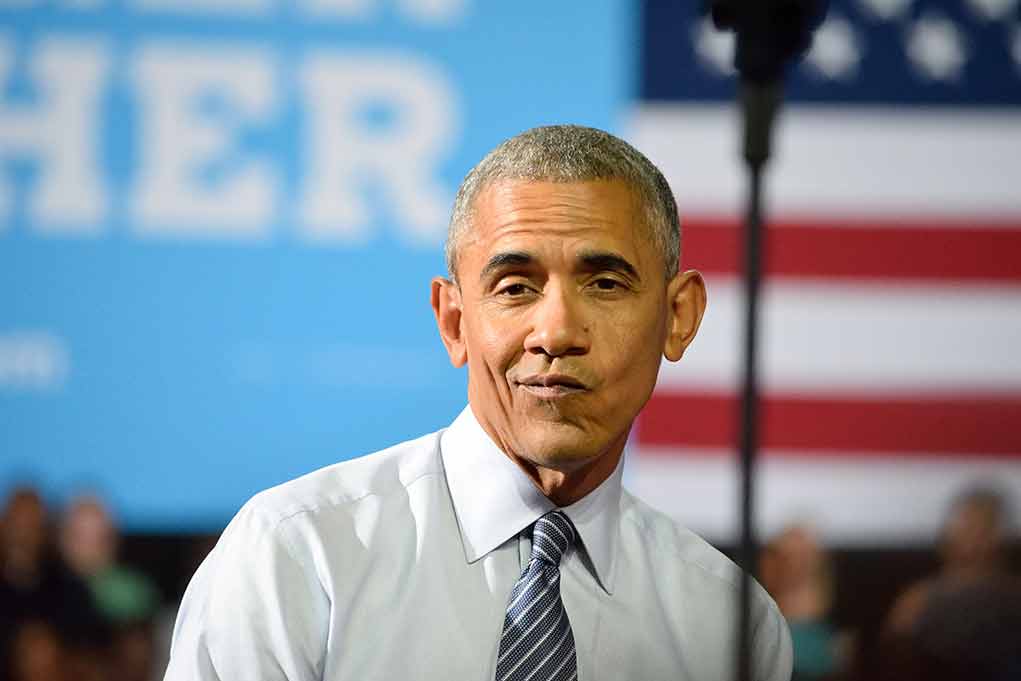
Judge James Boasberg’s strategic delay of Hillary Clinton’s email release until after the 2016 election reveals a troubling pattern of judicial decisions that appear to favor Democratic interests while obstructing Republican policies.
Key Takeaways
- Obama-appointed Judge Boasberg ruled that most of Clinton’s emails wouldn’t be made public until after the 2016 Election Day, potentially shielding her from political fallout.
- Despite claims of being “principled and fair,” Boasberg has shown inconsistent standards, delaying Clinton’s emails while rushing to block President Trump’s deportation of illegal immigrants with criminal backgrounds.
- The judge has a history of ruling favorably for Democratic interests, raising questions about judicial impartiality in politically sensitive cases.
- Boasberg now presides over the “Signalgate” lawsuit targeting Trump administration officials, furthering concerns about case assignment and potential bias.
Clinton’s Email Controversy and Judicial Protection
In 2016, as the presidential race between Hillary Clinton and Donald Trump intensified, U.S. District Judge James Boasberg made a decision that potentially altered the course of American politics. The Obama appointee ruled that thousands of Hillary Clinton’s emails, recovered during an FBI investigation, would not be released to the public until after Election Day. This ruling came despite lawsuits from conservative watchdog group Judicial Watch, which sought to make the emails public under federal disclosure laws.
The State Department, then under Obama’s administration, was ordered to process only a small fraction of the emails before voters went to the polls, with the vast majority scheduled for post-election release. This controversial timetable effectively shielded Clinton from potential fallout that could have influenced voter decisions about her candidacy.
A Pattern of Partisan Rulings?
While supporters describe Boasberg as “principled and fair,” his judicial record suggests potential inconsistencies in his application of legal standards. When dealing with Democratic interests, as in Clinton’s case, Boasberg showed remarkable patience and deference to bureaucratic timelines. However, when President Trump attempted to implement deportation policies for criminal illegal immigrants, Boasberg moved swiftly to block executive action.
Most recently, Boasberg has been assigned to preside over the “Signalgate” lawsuit, which targets high-ranking Trump administration officials including Defense Secretary Pete Hegseth, CIA Director John Ratcliffe, and Secretary of State Marco Rubio. The lawsuit alleges violations of the Administrative Procedure Act and Federal Records Act regarding the officials’ use of the Signal messaging app.
Questionable Case Assignments and Political Connections
The frequency with which politically sensitive cases land on Boasberg’s docket has raised eyebrows among Republican lawmakers and Trump supporters. Representative Jim Jordan has publicly questioned the supposedly random assignment process that has repeatedly placed Boasberg in position to rule on matters affecting the Trump administration.
“Well I think there’s a lot of people who think there’s a bias. After all, as you mentioned Benny, this is the guy who said, ‘turn the flight around, bring all the bad guys, the hardened criminals who were here illegally who did terrible things, bring those folks back to America.’ This is the judge who was there on the FISA court when they issued the warrants to spy on President Trump’s campaign eight years ago. So, there’s a history there and yet no, no recusal, he’s going to get the case,” said Republican Representative Jim Jordan.
Boasberg’s personal connections also raise questions about potential biases. He was law school roommates with Supreme Court Justice Brett Kavanaugh, yet his rulings often align with progressive interests rather than conservative principles. This has led critics to question whether his judicial philosophy is consistently applied or subject to political considerations.
The Impact of Judicial Activism
The case of Clinton’s emails demonstrates how judicial decisions on timing and procedure can have profound political consequences. By delaying the release of potentially damaging information until after an election, judges can effectively shield candidates from voter scrutiny. While Boasberg’s delay couldn’t prevent the discovery of Clinton’s emails on Anthony Weiner’s laptop, which led to FBI Director James Comey reopening the investigation, it exemplifies how the judiciary can influence the political process.
“Boasberg is the opposite of a radical judge,” one former Justice Department prosecutor said.
While defenders may see Boasberg as a moderate jurist, his record suggests a pattern of decisions that have consistently worked to the advantage of Democratic interests and against Republican policies. As he continues to preside over politically charged cases involving the Trump administration, questions about judicial impartiality and the integrity of the federal court system will likely persist.
Sources:
- Who is James Boasberg, the judge in Trump administration immigration fight? | Reuters
- Judge James Boasberg had nonpartisan record before facing Trump’s fury | CNN Politics
- MAGA Questions Judge Boasberg Assignment to Signal Lawsuit: ‘Rigged’ – Newsweek
- Can You Guess Which Judge Protected Hillary by Delaying Release of 15k of Her Emails Until After the 2016 Election?

